Firms should boost wages after oil price fall, says PM
- Published
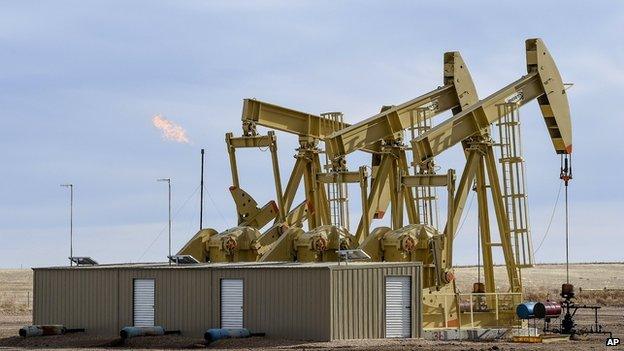
Companies profiting from falling oil prices should pass on the benefits by increasing workers' wages, Prime Minister David Cameron has suggested.
He also urged employers to pay the "living wage", which is higher than the national minimum wage of £6.50 an hour.
Figures show record earnings in the manufacturing and service sectors as firms benefit from cheaper oil.
Labour has campaigned on the cost of living and said there was a difference between the PM's rhetoric and reality.
The price of a barrel of oil has fallen to less than $50 in recent months - less than half its value last summer - amid falling demand and increased US shale field production.
Speaking to reporters at the White House during a two-day visit to the US, Mr Cameron was asked whether he would encourage firms to pass on some of the windfall profits from falling oil prices in higher pay.
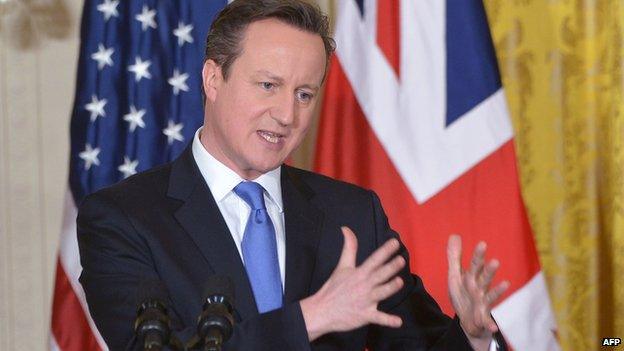
Mr Cameron was speaking to reporters during his visit to Washington
He said: "Obviously I want to see companies' success passed through in terms of wage increases.
"It has to be done in a way that's affordable, and in a way that companies can continue to grow, we need to see productivity increase."
Mr Cameron said companies "that can afford to pay the living wage should".
He said: "It's good and helps to reduce the welfare bill."
He added: "Falling oil prices is going to benefit a lot of businesses and a lot of countries and we want to see those benefits passed through in all the ways they can be."
'Worse off'
More than 1,000 UK employers currently pay the living wage, external, an informal benchmark based on the amount an individual is calculated to need to cover the basic costs of living.
Promoted by the Living Wage Foundation, it is currently £9.15 an hour in London and £7.85 an hour outside the capital.
Mr Cameron had previously indicated that he supports the idea of the living wage.
He told reporters in Washington that sticking to the government's economic plan was the only sustainable way to create jobs and raise living standards.
The Labour leader, Ed Miliband, who has long talked about the "cost of living crisis", has said he favoured including the living wage in his party's manifesto for the general election.
In response to Mr Cameron's comments in the US, a Labour Party spokesman told the BBC the coalition was the first government since the 1920s to leave people worse off at the end a parliament than at the beginning.
The party has argued that most people are yet to benefit from the recovery in the UK economy as there has been below-inflation wage rises and a squeeze on living standards under the coalition.
- Published7 January 2015
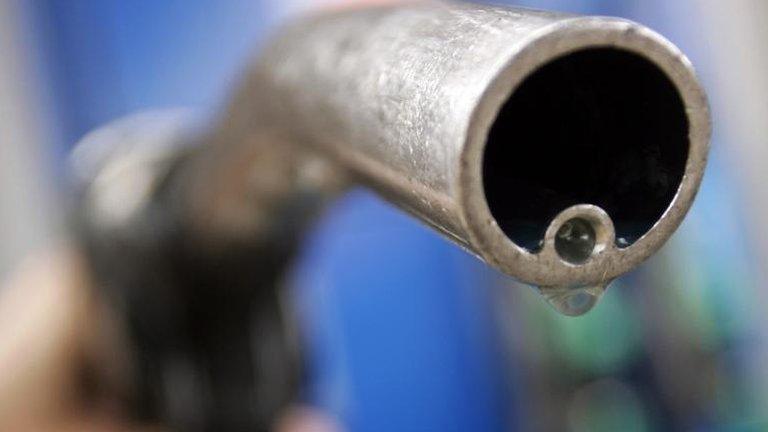
- Published15 January 2015

- Published11 January 2015
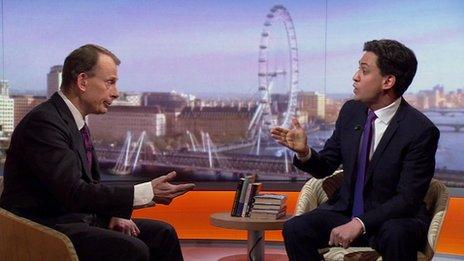
- Published2 November 2014

- Published13 January 2015
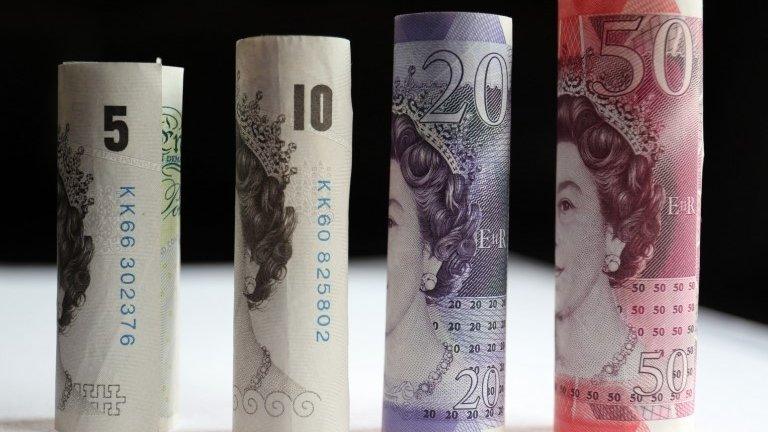
- Published13 January 2015

- Published19 January 2015
